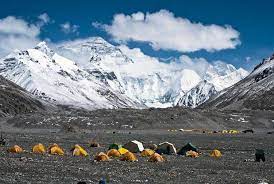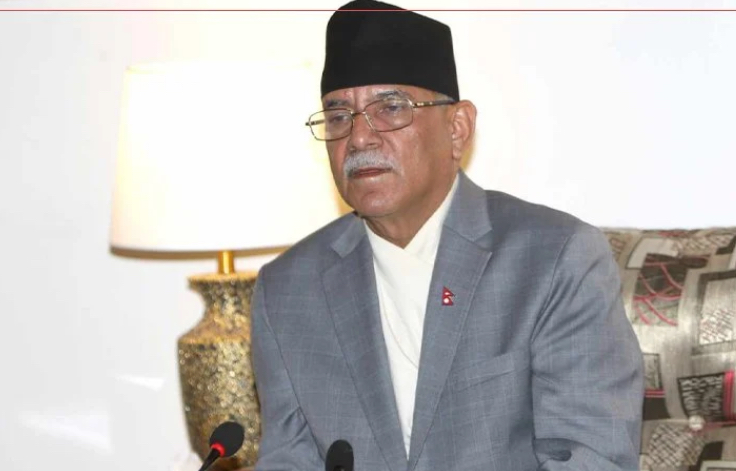Nepalese Authorities Crack Down on Luxury Facilities at Everest Base Camp

Kathmandu — In a bid to address overcrowding and environmental concerns at Everest Base Camp, Nepalese authorities have implemented stringent regulations targeting luxury facilities and commercial ventures catering to climbers.
Luxury amenities such as yoga tents, ensuite bathrooms, and flatscreen televisions, once a common sight at the base camp situated approximately 17,598 feet up the Himalayan mountain, will now be prohibited under the new rules. Concerns over the overcrowding of the base camp, exacerbated by the influx of visitors and the proliferation of luxury holiday companies offering premium services, prompted the crackdown.
Dome-shaped tents equipped with lavish features like carpeted flooring, wooden furniture, and ensuites will be replaced with smaller accommodations to ensure fair allocation of space. Additionally, commercial ventures such as bars, bakeries, cafes, and museums will be banned to preserve the sanctity of the natural environment.
The regulations also aim to bolster local employment opportunities by mandating the use of yaks instead of helicopters to transport equipment. Helicopters will be restricted to emergency rescue operations for injured climbers and evacuations due to altitude sickness.
Dawa Steven Sherpa, secretary of the Expedition Operators Association, emphasized the importance of maintaining comfort at the base camp while minimizing environmental impact. He stated, “Base camp should be comfortable. That’s the point. There’s nothing wrong with luxuries, as long as you are not impacting other people or the environment.”
The issue of waste management has long plagued Everest Base Camp, prompting the establishment of the Sagarmatha Pollution Control Committee (SPCC) in 1991. The SPCC oversees waste collection efforts at the base camp and the surrounding trails in the national park. Climbers venturing beyond Base Camp since 2014 are required to carry back 18 lbs (8kg) of rubbish or risk forfeiting their deposit.
While luxury tourism contributes significantly to the Nepalese government and the local economy, the excessive waste generated poses a threat to the fragile ecosystem of the Himalayas. The implementation of these regulations reflects a concerted effort to strike a balance between tourism and environmental conservation in one of the world’s most iconic destinations.


















Facebook Comments